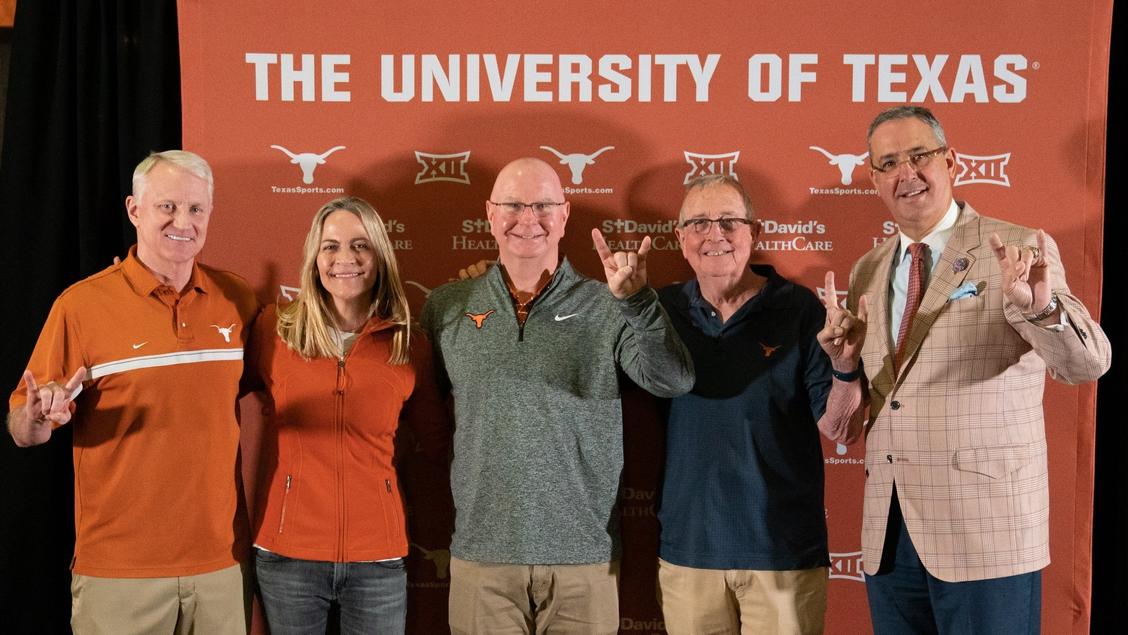The University of Texas athletic department announced it has raised over a billion dollars in capital.
The billion dollar mark was the department goal as part of the University’s “What Starts Here” fundraising campaign. Publicly launched in March 2022, What Starts Here has an overall capital fundraising goal of 7 billion.
“This marks one of the largest, if not the single largest, campaign total for any athletics program in the nation,” reads the Longhorn Athletics website.
The Longhorns are leaders in athletic finances by several other metrics as well. In 2023, the athletic department reported $273 million in revenue, a record among NCAA schools.
In the swimming world, new Texas Director of Swimming & Diving Bob Bowman has the largest compensation base and ceiling in the NCAA swimming world. His base salary starts at $450,000, and he could receive up to $1.7 million in performance-based bonuses in the next six years.
Demand plays a big role in this compensation level. Bowman is one of the world’s most prolific swim coaches, coaching names such as Michael Phelps, Allison Schmitt, and Léon Marchand to dozens of Olympic medals. He also has head coaching experience at two other Power Five NCAA programs. This year, he coached Arizona State to a men’s NCAA title.
On Texas’ side of the deal, the men’s program has a rich history that includes 15 NCAA team titles. This no doubt makes the position highly regarded to many. An in-demand position filled by an in-demand candidate makes this NCAA-leading compensation intuitive.
Demand aside, it’s also logical that a department with industry-leading capital is able to pay coaches more than other programs.
This capital fundraising milestone comes at a pivotal point in both Texas athletics and college athletics. Texas is in its first year as a member of the SEC, leaving its Big 12 conference contract a year early.
Additionally, new NIL rules are expected to raise the athletic department’s expenses. If House v. NCAA is settled with no more changes, schools will have to pay $2.8 billion to former athletes for missed NIL capitalization opportunities. Schools would also be allowed to share up to $22 million of revenue with their current athletes annually.
Texas athletic director Chris del Conte expressed gratitude to donors for reaching this milestone in a Tweet.
“The Texas family is second to none.”

A few facts to clear up some incorrect information. That $7 billion goal is for the whole University fund raising project -not for the athletic department.
The $1 billion that the athletic department has raised is not all for endowment funds. It includes capital raised for facilities and support of other current needs and improvements.
According to Longhorn Foundation from August 31, 2023 the athletic department endowments total around $ 50 million with Men’s Swimming & Diving holding a $ 5.1 million endowment.
Wish they paid their support staff even remotely comparably to their head coaches !!!
Maybe buy the pool from Rec. sports and fix some issues before hosting NCAAs. See And I’d like a Jumbotron, so you can see diving.
Everything is bigger in Texas…
This makes me wonder: could UT end up paying a collegiate swimmer *more* than they pay Bowman at some point? Seems like they’ll soon have the war chest to do it, if they don’t already.
What reality are you in?
This is for the athletic department as a whole…
Given multiverse theory, I don’t know how to answer. But do the math. The UT Athletic department budget is about $232M. If they raise $7B they can put that in an Ally bank account – let alone something that returns more – and cover their expenses from interest alone plus $50M to do with as they see fit. It’s easily in range as long as it’s not against the rules. They might choose to give it to other sports (e.g. Football, basketball) but if Bob can make a good argument, I think this is very possible.
College endowments typically return 4.5-7% annually, depending on where the markets are at, over a period of time.
But yes, this seems to be math that generally works out. If you can raise $7 billion, your department is probably evolution-of-college-sports proof.
why would they pay a swimmer that much unless they were like Michael Phelps
Ummm … That’s exactly what I’m saying. I’m not saying they’re gonna pay Coby Carozza that money. But the next Leon Marchand? Why not? Having a swimmer that’s gonna score 60 points every year individually and boost their relays make a national title, or a streak of national titles, that much more possible.
They already pay multiple football players far more – with Arch Manning topping the list at a reported $3,100,000. See https://www.dallasobserver.com/news/top-10-texas-college-nil-earning-athletes-20578018
And a track athlete is reported to make $941,000
Yea, exactly, thank you Wahoo.
My jaw just dropped
How does this affect potential medley relay lineups and potential freshman dropping 4 seconds an 100?
@bobthebuilderrocks
Modglin/Germonprez/Kos/Hobson getting top 3 in the medleys, put it in the books.
Gotta get past LSU first
Texas might be the one institution that I actually have a little bit of faith in them keeping their programs and not resort to cutting. They have monster pockets
there is the other side of the coin as well. How much did they spend? That would determine if a program is going to get cut, expenses.
For example, UF is not the highest, but there expenses are below their revenue which is what you want.
Texas athletics makes a profit and every year transfers around $5 million to the general university budget.
They downvote because they hate the truth